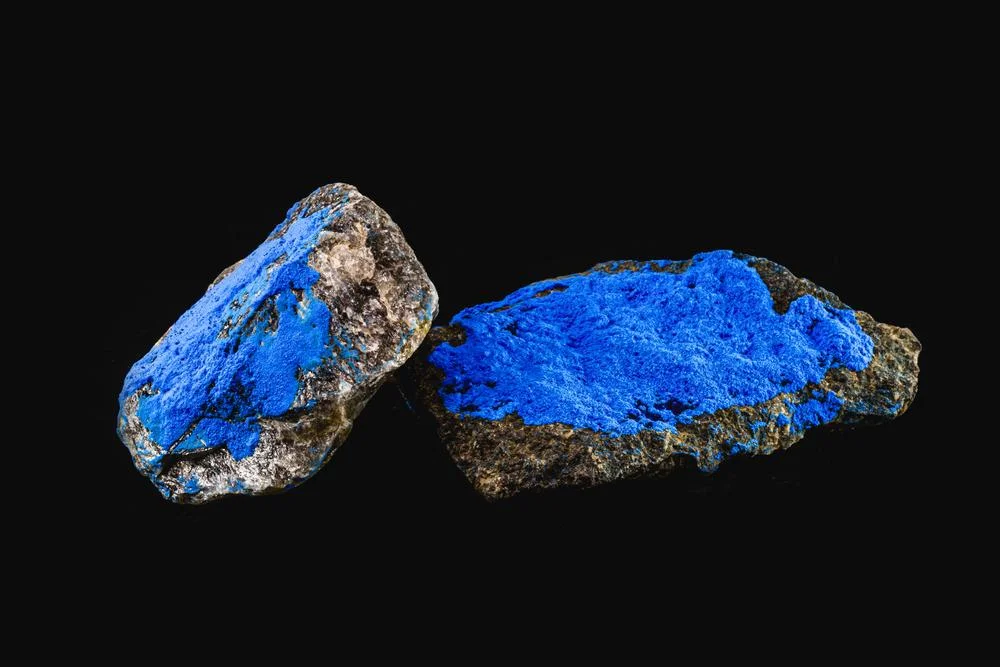Electronic gadgets abound now. We even drive electric automobiles, laptops, tablets, and smartphones. Strong batteries enable all of these gadgets and cars to keep operating. But have you ever pondered the substances that assist in creating such amazing batteries? A metal known as cobalt is a major component.
We will investigate in this blog how cobalt is employed in electronic devices and batteries, why it is so vital, and what obstacles its use brings with it.
What Is Cobalt?
Cobalt has a bright silver color with a bluish shade. It’s a metal that is available within many transition metals, as you see in the periodic table. It has qualities like: tough, strong, durable, and possessing resistance against corrosion.
Moreover, it can survive in harsh temperatures. Such characteristics are important for any metal to be applicable within industrial processes.
Typically, cobalt is never found alone in nature. Rather, it is found in minerals combined with other metals like copper and nickel. After extraction, cobalt is cleaned for several applications, chiefly in the production of electronic components and batteries.
Cobalt for Batteries
Batteries power our electronic equipment. They keep and release energy from the cellphones in our pockets to electric vehicles on the road. Over the last few decades, lithium-ion has been the rechargeable battery most often used. Making these batteries more efficient, durable, and safe depends in part on cobalt.
Cobalt assists in batteries in the following ways:
Thus, boosting the energy density of a battery, cobalt allows it to hold more energy. This suggests batteries last more per charge.
To stabilize the Battery, within charging and discharging cycles, cobalt stabilizes the battery to avoid any overheating issues.
Extends battery life: Cobalt batteries work for several charging cycles. Hence, they are durable in nature and work ideally for many applications.
Higher energy density provided by cobalt lets batteries be smaller and lighter, ideal for portable electronics.
Wholesale bulk cobalt supplier offers the best quality cobalt!
Cobalt: Utilized in Lithium-Ion Batteries
A lithium-ion battery is made up of a cathode (positive end), an anode (negative end), an electrolyte, and a separator. Most cobalt is in the cathode.
Most lithium-ion batteries nowadays include a cathode made of lithium cobalt oxide (LiCoO₂). This material has cobalt along with a high energy capacity. Lithium ions move in and out of the cobalt oxide layer to keep or discharge energy when the battery charges or unloads.
Other cathodes based on cobalt:
As technology develops, fresh cobalt cathode formulations, including lithium nickel cobalt aluminum oxide (NCA) and lithium nickel manganese cobalt oxide (NMC), become available. These mixes try to strike a cost-performance-safety equilibrium.
Cobalt in Electric Vehicles and Renewable Energy Parts
The most transforming the transportation sector is electric vehicles (EVs). Cobalt is a crucial ingredient of EV batteries since it enhances battery performance.
- By keeping more energy in the battery, cobalt allows EVs to have more range on a single charge.
- Cobalt batteries may be charged quickly and without risk.
- Better endurance: Cobalt lengthens EVs by letting batteries withstand several charge cycles.
To store surplus energy, renewable energy systems like solar and wind power also use batteries. Reliable storage options offered by cobalt-containing batteries ensure a consistent supply of clean energy and aid in stabilizing power grids.
Do Electronic Devices Need Cobalt?
Cobalt, though most usually found in batteries, subtly helps other electronic devices as follows:
- Lithium-ion batteries are present within tiny devices that also have cobalt in them. Moreover, these batteries are not efficient and do not last long without having cobalt in them.
- Many of their high-performance tools also depend on cobalt-based batteries for cordless power tools.
- Medical instruments: The Reliable performance of some medical devices depends on cobalt-based lithium-ion batteries.
To put it simply, cobalt helps to drive the devices we utilize every day. It helps to keep our digital world linked by means of invisible technologies. Wholesale cobalt manufacturer in DRC can help you out in many applications.
Challenges in Employing Cobalt
Though it is vital, using cobalt has drawbacks:
1. Ethical and Environmental Issues:
Often connected with environmental damage and unethical activities, cobalt mining has been found to be conducted in some nations under terrible working circumstances, and child labor has been recorded. This raises ethical issues about the supply chain and the imperative of ethical sourcing.
2. Restrictions on Supply:
Cobalt is a limited commodity. The supply might find it challenging to keep up as demand grows, particularly with electric vehicles. This can destabilize supply networks and increase expenses.
3. Recycling and Sustainability:
Reducing dependence on fresh mining requires recycling cobalt from depleted batteries. Recycling improves the sustainability of the process by helping to retrieve cobalt and other precious metals.
4. Cost:
Cobalt is expensive than other battery utilization elements, as it increases the overall price of EVs and electronic devices.
The Future of Cobalt in Electronics and Batteries
These problems are being actively addressed by academics and business executives:
- Scientists are developing cobalt-free batteries, lithium iron phosphate (LFP) batteries included, which are safer and less expensive but currently less energy-dense.
- Reducing the need for mining, technologies are progressing to enable more effective cobalt recovery from old batteries.
- Ethical sourcing: Many businesses are now dedicated to sourcing cobalt ethically and guaranteeing equitable labor practices.
- To cut or eliminate cobalt usage, new materials, including solid-state batteries and alternative cathodes, are being evaluated.
What Does This Mean for Us?
Particularly in high-performance batteries, cobalt will probably stay a major substance going forward. Still, continuous study seeks to provide more moral, cheap, and environmentally friendly batteries.
Clearly, a major component in the batteries driving our electric vehicles and electronic equipment is cobalt. Within today’s tech, it has the right ability to enhance safety and energy capability. Moreover, as the need for cobalt increases, we also depend on portable devices and renewable energy.
But difficulties with ethical sourcing, environmental impact, and supply stability remind us of the need for creative, responsible use. Promising answers to lessen our reliance on mined cobalt are recycling and new battery technologies.
Though it needs to be handled judiciously, cheap bulk cobalt distributor ultimately has a big role in powering our digital world. By favoring ethical sourcing and technical developments, we can guarantee that this essential metal continues to help us create a more networked, cleaner world.




